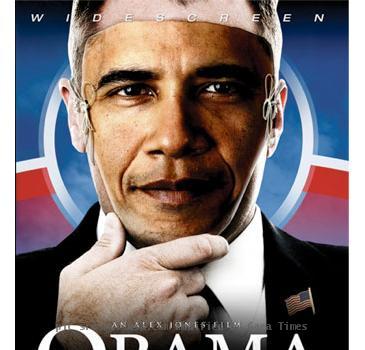Pakistani Taliban claim suicide bombing attacks that kills at least 43 Shiites at procession
By Ishtiaq Mahsud, APFriday, September 3, 2010
Pakistan Taliban say their bomber kills 43 Shiites
QUETTA, Pakistan — A suicide bombing claimed by the Pakistani Taliban killed at least 43 Shiite Muslims at a procession in southwest Pakistan. The assault sharply drove up the toll of sectarian assaults in a country battered by massive flooding.
To the northwest in Pakistan’s restive tribal regions, two suspected U.S. missile strikes killed at least seven people in an area controlled by one of the main groups battling Americans in neighboring Afghanistan, Pakistani intelligence officials said.
Two other militant bombings left at least two people dead and several wounded on a day convulsed by the violence that threatens the stability of Pakistan’s weak civilian government — an essential but problematic Western ally in the fight against Islamist militants.
The first attack of the day was a roadside bombing in the northwestern city of Peshawar that killed one police officer and wounded three others, officials said.
Hours later, a suicide attack on a mosque belonging to the minority Ahmadi sect killed at least one person and wounded several others in the nearby town of Mardan.
Soon after, a blast killed at least 43 people in the southwestern city of Quetta at a Shiite procession calling for solidarity with Palestinians, Quetta Police Chief Ghulam Shabir Sheikh said. He said 78 people were wounded and several were in critical condition.
Quetta police officer Hamid Shakil told local television six or seven of the dead appeared to have fatal bullet wounds, and said they may have been killed by participants in the procession who opened fire wildly after the attack.
Pakistani Taliban commander Qari Hussain Mehsud told The Associated Press one of his militant carried out the suicide bombing.
“We proudly take its responsibility,” he said. “Our war is against America and Pakistan security forces, but Shiites are also our target because they too are our enemies.”
He said he was proud the U.S. had added the Pakistani Taliban to its international terrorism blacklist on Wednesday, and he threatened attacks in the U.S. and Europe in coming days that would resemble a recent attempted car bombing in Times Square.
U.N. Secretary-General Ban Ki-moon strongly condemned the terrorist bombings. “These attacks, which deliberately targeted Shiite Muslims and killed or injured scores of civilians, are unacceptable,” U.N. associate spokesman Yves Sorokobi said at U.N. headquarters in New York.
White House press secretary Robert Gibbs says the timing of the violence makes the attacks “even more reprehensible,” coming during the Muslim holy month of Ramadan and as Pakistan recovers from devastating floods.
Also Friday, two Pakistani intelligence officials told the AP three suspected American missiles hit a house in a village near Miran Shah, the main town in North Waziristan, Friday evening.
The Taliban-allied Haqqani network controls the northwestern tribal area of North Waziristan along the Afghan border but its fighters are hunted by U.S. drone aircraft that regularly unleash deadly missile attacks.
The officials, who spoke on condition of anonymity because they were not authorized to release the information to the media, said the identity of the slain was not immediately clear.
The officials said a second suspected U.S. missile strike killed two people in a vehicle in the North Waziristan village of Datta Khel. They said the men were believed to be foreign militants.
The attack in Quetta was the week’s second claimed by the Pakistani Taliban and targeting Shiites, who by some estimates make up about 20 percent of the population in the mostly Sunni Muslim country, although figures are imprecise and disputed.
A triple suicide attack Wednesday night killed 35 people at a Shiite ceremony in the eastern city of Lahore.
Shiite leader Allama Abbas Kumaili said the attacks were a result of government failure and appealed to participants to remain peaceful despite anger that led to local unrest after the bombing.
“We understand these are attempts to set Sunni and Shiite sects against each other,” he said. “Our government concentrates all its efforts to secure VIPs. Common men are not their priority.”
Government officials have said they cannot protect outdoor gatherings from attacks, and Interior Minister Rehman Malik called Thursday for Shiites to hold religious ceremonies indoors.
Quetta, the capital of Baluchistan province, has been described by Western officials as a base for the leadership of the Afghan Taliban but attacking there would be an expansion of the range of the Pakistan Taliban. The Pakistani group is seeking to overthrow the country’s government as it seeks to recover from flooding that has caused massive displacement, suffering and economic damage.
The floods, spawned by heavy rains weeks ago have killed more than 1,600 people and affected about 20 million. The waters are still swamping rich agricultural land in the southern provinces of Sindh and Punjab.
Flood victims say they have received little government help, and most assistance has come to them from private charities. The International Committee of the Red Cross warned Thursday that survivors’ anger was beginning to hamper those aid efforts.
About 500 survivors blocked a key road in the Sindh town of Gharo on Friday to protest inadequate food and drinking water.
The White House said Friday that President Barack Obama has ordered an additional $33 million to aid Pakistani flood victims. The U.S. has already provided aid funding and military helicopters to help rescue operations.
Mahsud reported from Dera Ismail Khan. Associated Press Writers Rasool Dawar in Mir Ali, Riaz Khan in Peshawar, Vincent Thian in Gharo, and Edith M. Lederer at the United Nations contributed to this report.
Tags: Afghanistan, As-pakistan, Asia, Barack Obama, Bombings, Central Asia, Dera Ismail Khan, Emergency Management, Floods, Improvised Explosives, Lahore, Militant Groups, North America, Pakistan, Peshawar, Quetta, Religious Issues, South Asia, Terrorism, United States

